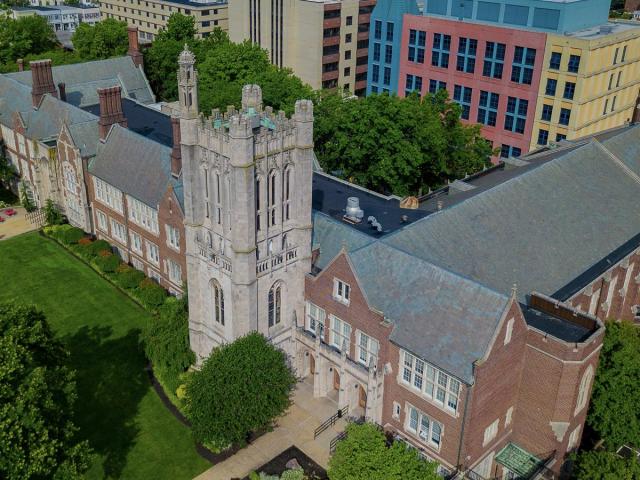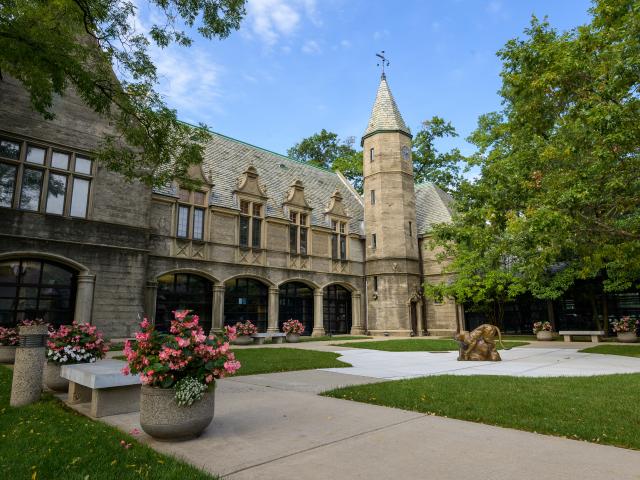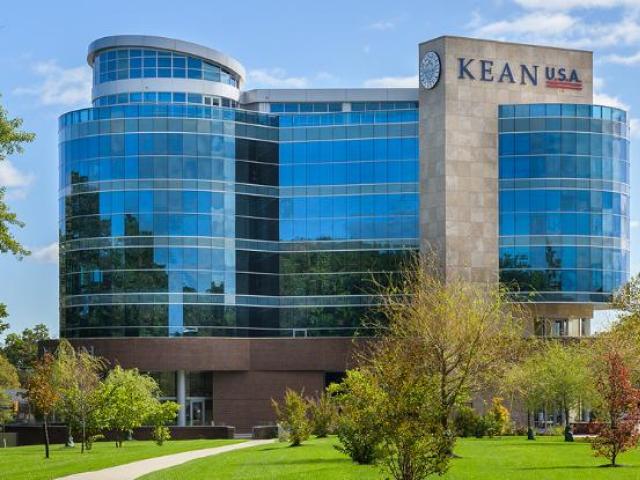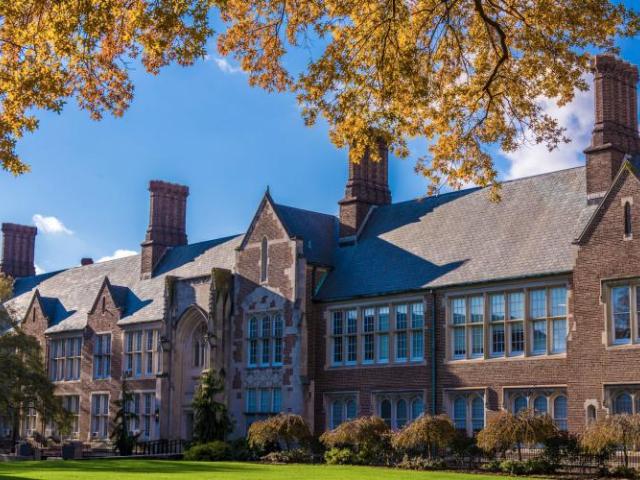Kean-NJCU Merger
In early 2025, Kean University submitted a proposal to execute a merger with New Jersey City University (NJCU). On Wednesday, March 5, the NJCU Board of Trustees voted to move forward with that proposal.
This website will serve as a resource as the merger process unfolds in the weeks and months ahead.
Inside the Integration
A. About the Merger
As both institutions enter the Fall recruitment cycle, these FAQs are designed to support staff members in their interactions with prospective students and families.
1. Why are Kean and NJCU merging?
In 2022, NJCU faced significant financial challenges, prompting the State of New Jersey to appoint a monitor to review the university’s financial health and long-term viability.
The monitor recommended that NJCU partner with a strong and stable higher education institution to preserve access for its students and community.
Following this recommendation, the NJCU Board of Trustees voted in March 2025 to select Kean University as that partner.
The merger will ensure continued access to affordable, high-quality higher education for students from Hudson County and across the state.
2. When will the merger take place?
Leaders of Kean University and New Jersey City University (NJCU) signed a definitive agreement in October 2025 advancing the merger between the two state universities. The merger is currently under review and must be approved by accrediting/governing bodies and the U.S. Department of Education. The goal is to complete this process by July 1, 2026. Once the accreditation review process is complete and the merger is approved, all NJCU students will become Kean University students.
3. Should prospective students for Fall 2026 apply separately to Kean and NJCU?
Yes. Students interested in attending Kean and NJCU should continue to apply to each university separately, following the current admissions process at each university.
4. Will this merger affect admission decisions or application processes at either institution?
No. Admissions decisions for the 2026-27 academic year will continue to be based on the current standards and processes of each university. Applicants will not be disadvantaged or delayed because of the merger.
5. How does this merger strengthen Kean University’s role and reputation in New Jersey higher education?
The merger will position Kean as a statewide anchor institution, expanding our reach and impact while reinforcing our leadership in public service, equity and research. It will also build on Kean’s momentum as an R2 research university.
6. What does this merger mean for Kean’s identity as New Jersey’s first Urban Research University?
The merger deepens Kean’s role as New Jersey’s urban research university by combining our research capacity with NJCU’s urban footprint, creating new opportunities for innovation and community impact.
7. What is the shared history between Kean and NJCU?
Both institutions began as teachers colleges in the 19th and early 20th centuries, dedicated to preparing educators for New Jersey’s growing population. Over time, they have evolved into comprehensive universities, serving diverse student populations with a broad range of academic offerings.
B. Student Impact and Experience
8. How will this merger benefit current Kean students?
Students will benefit from expanded academic offerings, access to new learning locations, enhanced student services and a broader alumni and professional network across the state.
9. Will Kean students have new opportunities to study or engage in Jersey City?
The merger will integrate NJCU’s Jersey City campus into the Kean ecosystem, opening new opportunities for academic programs, research, internships and community partnerships in Hudson County. The University consulted with Hanover Research, an independent research company, to analyze academic program offerings at both campuses. The report is one of many factors being considered in academic planning. The executive summary of the Hanover report is available here.
10. Will the merger affect tuition, financial aid or Kean’s affordability?
Kean remains committed to affordability and continues to be New Jersey’s most affordable comprehensive public university. We do not anticipate that the merger will impact current tuition rates or financial aid commitments for Kean students.
11. Will student support services at Kean change because of the merger?
While the merger presents exciting opportunities to serve additional students and support greater student collaboration, we expect Kean will maintain its student-centered support services under the Division of Student Success and Retention, while expanding successful programs like the Center for Advising, Persistence and Success (CAPS) and Moon Shot for Kean to serve a broader student population.
12. What steps will be taken to ensure that the merger maintains and enhances the quality of education and support services for current students?
The merger is being guided by a student-first approach, with every decision focused on supporting success. Academic programs will be reviewed to ensure quality, consistency and compliance with accreditation standards. Student support services will be expanded with unified departments and shared resources, providing more consistent and accessible support across both campuses.
13. What is the likelihood that students would be able to take classes at either campus?
Once the integration is complete, students will be part of one Kean University, with greater flexibility and access to a broader catalog of courses across the Union, Jersey City and Toms River campuses. Work is underway to align programs and systems, so students can take classes where it best fits their needs, whether that is in person, online or in hybrid formats. Students will also benefit from international opportunities, including Kean’s study abroad programs at various locations worldwide, including Wenzhou-Kean University in China. While some programs may be based on specific campuses, efforts are being made to expand options by offering core and elective courses in multiple modalities. The ultimate goal is to broaden, not limit, opportunities, providing students more pathways, support and flexibility in earning their degree.
14. Will the current requirements for my program remain the same?
Every effort will be made to avoid disrupting student progress throughout this process. If a program exists at both Kean and NJCU, it will be unified under Kean’s curriculum to ensure alignment and quality. Programs offered only at Kean will continue unchanged. In rare cases where a program may be discontinued, currently enrolled students will be able to complete their program or transfer seamlessly into another Kean program. Clear transfer pathways are being developed so NJCU credits apply toward a Kean degree without delaying graduation. The goal is to make the process as seamless as possible while preserving students’ progress toward their degrees.
15. Will credits from NJCU be transferred in full?
Yes. All NJCU credits will transfer into Kean, with pathways being built to ensure they apply toward a Kean degree. In some cases, credits may transfer as electives, especially if a student chooses to change majors and take advantage of Kean’s broader program options. The goal is
to give every student credit for the work they have already completed while expanding opportunities to pursue new academic paths.
16. Will diplomas be issued under NJCU, Kean or the newly merged institution?
NJCU students who graduate before the integration is finalized will receive an NJCU diploma. After the merger is completed and approved, which is expected in summer 2026, all new students and most current students will receive Kean degrees. NJCU students enrolled in programs that do not continue at Kean University after the merger will have the option to complete the program and receive a NJCU degree or transfer to a similar program at Kean.
17. What will happen to student services such as library access, advising, athletics, and extracurricular activities?
Student services will not only continue but, in many cases, expand under the integrated Kean model. Libraries, academic advising, counseling, and student life programs will be aligned across campuses to ensure consistent quality and access for all students. NJCU students will also gain access to Kean’s Open Educational Resources. Athletics are under active review, with a shared committee working to design the best structure for both competitive and recreational programs across the unified institution.
18. Should NJCU students expect changes to academic programs, student groups or university resources due to the merger?
This merger aims to expand access to more academic programs, research opportunities and experiences that will connect Jersey City students to Kean’s statewide and global network. Students can also expect a broader range of clubs, leadership programs and campus events. The campus will remain deeply rooted in Hudson County, serving as a powerful hub for urban education and opportunity now backed by Kean’s full resources and reputation.
19. When will information be released about the courses, class locations and instructional modalities for the 2026–2027 academic year?
Teams are actively working on program planning now, and we expect to begin sharing more detailed information this spring as those plans take shape. But the goal is simple: to expand options for students. We want students to have more choices in how and where they take their classes, whether that is in person, online, or even a hybrid of both. This merger gives us the chance to build schedules that truly meet students where they are.
20. If a student has a scholarship from NJCU, will it be recognized by Kean in the next academic year?
Students will not lose their scholarships because of the merger. Kean will honor all existing merit scholarships currently awarded to NJCU students and will also fully accept all need-based financial aid commitments for the 2026–2027 academic year, so students can plan with confidence. Looking ahead, Kean Jersey City students will have access to even more opportunities. They will be able to apply for scholarships through both the NJCU Foundation and the Kean University Foundation, opening a broader range of financial support.

C. Academic Excellence and Faculty
21. When will there be one consolidated University Senate, and how will that be formed from the two schools?
Once the merger is complete, there will be one unified Kean University Senate, representing faculty and staff from all Kean campuses, including Kean Jersey City. It will serve as a single, collaborative body for shared governance across the entire university. There will be broad opportunities for input and participation from both campuses, ensuring every voice is heard as we shape this new, inclusive structure together.
22. How will this merger enhance Kean’s academic programs and research opportunities?
The merger will create new opportunities for interdisciplinary collaboration, program expansion, international outreach and graduate-level offerings in high-demand fields aligned with workforce needs.
23. Will there be changes to Kean’s faculty or curriculum?
Kean will continue to invest in high-quality instruction and faculty development. While specific changes are not currently planned, the merger offers opportunities to integrate complementary programs and share best practices across campuses.
24. How will Kean ensure academic quality across all campuses, including Jersey City?
Kean’s multi-campus model ensures consistent academic standards and student support across locations, backed by centralized systems and coordinated faculty development. This model already supports Kean Ocean in Toms River, Kean Skylands in Jefferson and Wenzhou-Kean University in China.
D. Kean’s Mission and Commitment to Equity
25. How does this merger support Kean’s mission?
The merger advances Kean’s mission by expanding access to high-quality, affordable education for historically underserved communities and increasing support for first-generation and low-income students. Kean and NJCU share a deep commitment to support our underserved communities. The merger strengthens Kean’s ability to serve New Jersey’s diverse student population and uplift communities through education.
E. Kean’s Resources and Financial Strength
26. How is Kean funding this merger, and will it affect current operations or investments in Union or other campuses?
Kean’s strong financial foundation, which includes clean audits and debt reduction, allows it to lead this merger with state support without compromising existing operations or capital projects.
27. Will this merger impact Kean’s ability to continue capital improvements and new initiatives across its campuses?
Kean has already invested $100 million in capital projects through self-generated funding and will continue making strategic investments across its campuses.
28. How does this merger reflect Kean’s financial health and long-term strategy?
The merger aligns with Kean’s long-term strategy to grow sustainably, expand statewide impact and deliver measurable value to students and communities across New Jersey.
F. Opportunities for Kean Faculty and Staff
29. What opportunities will this merger create for Kean faculty and staff?
The merger will offer new teaching, research, leadership and service opportunities for Kean faculty and staff as the university expands its reach and programs.
30. Will Kean employees be involved in shaping the integration of NJCU into Kean University?
Kean plans to involve faculty and staff in cross-campus planning, academic alignment and student service integration to ensure a smooth transition and shared success.
31. How will Kean maintain its culture and community during this expansion?
Kean’s model balances centralized quality standards with campus-specific identity and culture, ensuring each location remains a vibrant part of the broader Kean community.
G. Athletics
32. What will happen to athletics as part of the merger?
No changes are planned for the 2025-2026 athletic season. A joint advisory committee is tasked with evaluating athletic programming on the Jersey City campus.
33. Which NJCU teams will merge into Kean teams without tryouts?
Student-athletes in the following NJCU programs will be able to continue competing at Kean without the need for tryouts:
- Women’s Cross Country
- Men’s and Women’s Outdoor Track and Field
- Men’s and Women’s Wrestling
- eSports
34. Which sports will require tryouts to compete at Kean?
Tryouts will be held for the following Kean NCAA teams:
- Men’s and Women’s Soccer
- Men’s and Women’s Volleyball
- Women’s Basketball
- Baseball
- Softball
Rosters for these teams will be expanded to accommodate additional student-athletes from NJCU.
Student-athletes on the Jersey City campus may also try out for sports not currently offered by NJCU, including Field Hockey, Lacrosse, Golf, Football, Flag Football, Women’s Tennis and Women’s Swimming.
35. What is happening to NJCU’s Indoor Track and Field programs?
NJCU’s Men’s and Women’s Indoor Track and Field programs will be discontinued. Student-athletes from these programs will be welcomed onto Kean’s Cross Country and Outdoor Track and Field teams.
36. What is the plan for NJCU Men’s Basketball?
The University is in the process of applying to enter a non-NCAA association for Men’s Basketball on the Jersey City campus. Additional details will be shared as they become available.
37. How will current NJCU student-athletes indicate whether they plan to compete at Kean?
Current NJCU student-athletes will receive a survey this spring to confirm their intent to play or tryout at Kean.
38. When will student-athletes receive information about next steps?
Additional information about next steps, including required forms, physicals, and other requirements, will be shared with interested student-athletes this summer.
39. What support services will be available to NJCU student-athletes competing on Kean NCAA teams?
Student-athletes participating in these NCAA teams will have access to key services on the Jersey City campus, including:
- Academic support
- Development programs
- Transportation to practices and competitions
40. Will there be Recreation programs on the Jersey City campus?
Yes. The Kean Jersey City campus will emerge as a dynamic recreation hub. Club teams, with access to competitive opportunities, will be sponsored based on interest in several sports, including:
- Men’s and Women’s Soccer
- Women’s Basketball
- Men’s and Women’s Volleyball
- Baseball
- Softball
41. Who should NJCU student-athletes contact for more information?
Any student-athlete seeking information about the NCAA transfer portal or transfer processes should contact the NJCU Department of Athletics for personalized guidance.
42. Who can NJCU student-athletes contact for support during this transition?
Students in need of mental health support are encouraged to reach out to the Counseling Center at counselingcenter@njcu.edu or by phone at (201) 200-3165.

H. Future Vision and Next Steps
43. How will Kean ensure a smooth and successful transition?
Kean will apply its proven multi-campus management model to support operational and cultural integration and student success across locations. Planning will prioritize consistency, communication and resource equity.
44. What is Kean’s long-term vision for the merged institution?
Kean envisions a stronger, sustainable university that advances social mobility, drives urban research and serves as a model of student-centered public higher education in New Jersey.
I. Alumni
45. Will NJCU continue to exist after the merger?
No. NJCU will transition into Kean Jersey City, an additional campus location of Kean University. The campus will continue to deliver academic programs, services and support in Jersey City, maintaining its commitment to the local community.
46. Will NJCU alumni become alumni of Kean?
No. NJCU alumni will remain alumni of NJCU and retain their original degrees and institutional identity.
47. Will there still be NJCU alumni programming?
Absolutely. Kean is committed to celebrating NJCU’s rich history and engaging its alumni through continued programming, events and outreach tailored specifically for the NJCU community.
48. As an NJCU alumnus, am I now a graduate of Kean University?
No. NJCU alumni will remain graduates of NJCU. Your diploma and alumni status will continue to reflect your achievements at NJCU.
49. Does my NJCU degree still matter?
Yes, without question. NJCU’s legacy spans nearly a century of excellence in education and public service. Your degree remains a meaningful representation of that legacy and will continue to be recognized and respected.
50. Can I still obtain my NJCU transcript?
Yes. Kean University will ensure secure and accessible record keeping for NJCU alumni. You will still be able to request official transcripts and verification of your degree.
51. Will the NJCU Foundation continue to exist?
The NJCU Foundation will continue to support the Jersey City campus, its students and programs. While the Foundation's name may eventually evolve to reflect the new institutional structure, its mission and impact will remain focused on the Jersey City community.
52. Will current NJCU scholarships and funds transition to Kean or remain with the NJCU Foundation?
The NJCU Foundation will continue to provide scholarship support for students on the Kean Jersey City campus. Scholarships and funds currently supporting that campus will not be transitioned to Kean.
53. Should I continue to support NJCU and its students?
Yes. Students at the Jersey City campus will continue to rely on generous donor support for scholarships, programs, and opportunities that allow them to climb higher. Your gifts have a lasting impact and are essential to student success.
54. Will spaces on the Jersey City campus named in honor of NJCU donors be renamed?
There are currently no plans to rename donor-recognized spaces. While the campus name will change, Kean is committed to honoring the legacies of those who have supported NJCU and the institution's history. Additional naming opportunities may also become available in the future.
55. Will donor intent still be honored on the Jersey City campus?
Yes. Respecting donor intent is a top priority. Kean is committed to ensuring that gifts made to support NJCU students, faculty and programs are used as intended, preserving the purpose and spirit of your generosity.
J. Finances
56. What is the current financial situation at NJCU?
Despite progress in recent years, NJCU will face a budget gap of $25 million to $30 million amid uncertainty in aid allocation. While temporary measures, such as one-time state appropriations, have helped close gaps in the short term, they have not solved the long-term mismatch between recurring revenues and expenses.
57. What caused the budget deficit?
The deficit is due to an ongoing imbalance between costs and sustainable revenue sources. NJCU has relied on non-recurring support to bridge operating shortfalls. At the same time, personnel expenses, fixed operating costs, and inflation are projected to continue to rise.
58. How have enrollment trends impacted NJCU’s financial outlook?
NJCU has experienced a significant decline in full-time equivalent (FTE) enrollment from 5,346 FTE in 2021 to 4,121 FTE in 2025, a reduction of 1,225 FTE or 22.9%. Because tuition and fees are a primary source of revenue, this decrease has had a direct impact on the university’s financial position.
59. What steps have already been taken to address the budget shortfall?
NJCU has made meaningful progress by reducing expenses in recent years, improving its budgeting practices, and receiving temporary stabilization aid from the state. These steps have helped mitigate short-term challenges, but ongoing structural changes are still needed to create a sustainable financial foundation for the future.
60. What happens if no further action is taken?
Even under conservative forecasts that assume flat enrollment and appropriations, NJCU would return to operating deficits as early as the next fiscal year. These deficits would continue to widen in the following years without structural changes.
61. What is the Outcome-Based Allocation (OBA), and why is it considered a risk?
Outcome-Based Allocation is a performance-based state funding model that public higher education institutions like NJCU and Kean currently receive. While it has provided meaningful support in recent years, there is increasing uncertainty about whether it will continue amid broader state fiscal pressures. Cuts would significantly exacerbate the NJCU campus’s financial challenges.
62. How is Kean addressing the financial situation as part of the merger?
Kean is actively planning both programmatic and operational strategies to support the integration and long-term financial health of the Kean Jersey City campus. This includes assessing opportunities for efficiency across both campuses, developing a multi-year budget strategy focused on sustainability, and supporting NJCU in current efforts to stabilize and streamline operations.
63. How will decisions about programs or staffing be made?
A commitment to transparency, student success and long-term sustainability will guide decisions on programs, staffing and operations. Planning teams are actively reviewing data and identifying opportunities to strengthen the institution while preserving access and quality.
64. When will more information be shared about the next steps?
The integration planning process will continue into 2026, with key decisions expected in the months ahead. As plans develop, regular updates will be shared through Inside the Integration, other campus communications, and engagement with labor unions and stakeholder groups.
65. How will facilities and campus planning improvements impact the campus experience at both universities?
By aligning our standards, streamlining planning and improving transparency, we will create spaces on both campuses where students, faculty and staff can thrive. These efforts support a safer, more sustainable environment that supports learning, collaboration and student success.
66. Will all NJCU buildings be included in the merger?
Yes. The legislation signed by former Gov. Phil Murphy advancing the merger authorizes the full transfer of NJCU’s facilities and assets to Kean.
67. Will there be investments to improve NJCU’s campus facilities?
Yes. NJCU received more than $44 million from the state as part of capital facilities grant funding awarded to universities throughout New Jersey. The money will cover a portion of deferred maintenance, including roof and boiler room repairs, building remodeling, and replacing campus network infrastructure, along with other projects.
68. How is Kean addressing transportation and parking needs on the Union campus?
Kean is continually evaluating parking needs and identifying ways to improve transportation efficiency across the Union campus. The University offers multiple parking lots and a parking garage with more than 600 spaces, complemented by a campus shuttle service that helps students navigate campus with ease. A new shuttle tracking system and on-demand request feature with additional pickup and drop-off locations were also recently introduced as part of Kean’s ongoing efforts to enhance mobility and efficiency for the campus community.
69. Will students have the option to live on either campus?
Yes. Both the Jersey City and Union campuses will maintain residence halls, so students can choose to live at either location.



